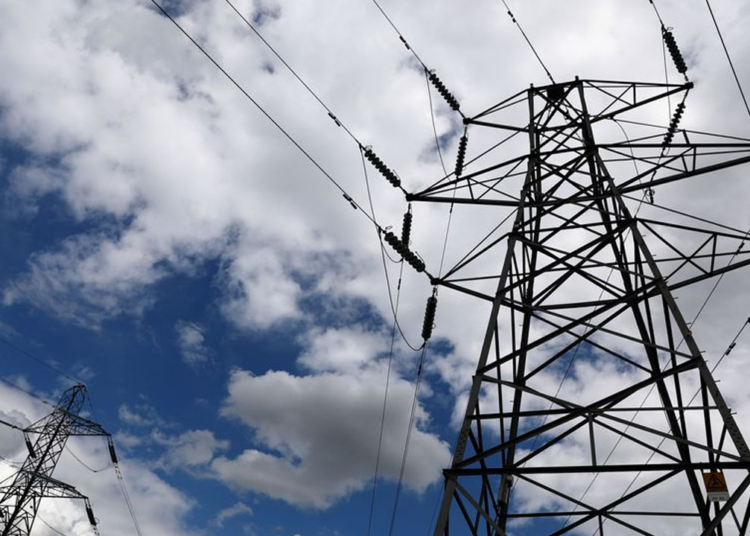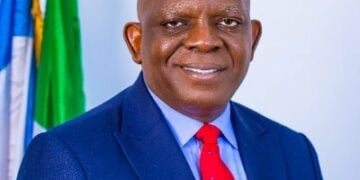In a historic move with the potential to revolutionize Nigeria’s energy landscape, President Bola Tinubu and German Chancellor Olaf Scholz signed a crucial agreement on Friday at COP28 in Dubai. The Presidential Power Initiative (PPI) agreement aims to add 12,000 megawatts (MW) of electricity to the Nigeria national grid, addressing the long-standing power challenges faced by the nation.
The signing ceremony, witnessed by high-level officials from both countries, marked a significant milestone in the bilateral relationship between Nigeria and Germany. Among those present were Kenny Anue, Managing Director, Federal Government of Nigeria Power Company; Nadja Haakansson, Managing Director (Africa), Siemens AG; Lateef Fagbemi, Attorney-General of the Federation; Festus Keyamo, Minister of Aviation; Adebayo Adelabu, Minister of Power; Balarabe Lawal, Minister of Environment; Said Alkali, Minister of Transportation; Dr. Dorris Anite, Minister of Industry, Trade and Investment; and Abubakar Kyari, Minister of Agriculture.
Minister Unveils Short-term Power Sector Focus
Speaking at the event, FGN Power Company Managing Director, Kenny Anue, emphasized President Tinubu’s commitment to developing power infrastructure, noting that he views it as critical to ongoing reforms. He said that the PPI encapsulates both electricity and financing, with the support of partners Siemens Energy and German government-backed financiers.
Anue acknowledged the progress made thus far, including the establishment of the FGN Power Company as the project’s special purpose vehicle and the German government’s selection of lead arrangers and financiers. He also commended Siemens Energy for successfully delivering 10 units of power transformers and 10 units of mobile substations.
Joe Kaeser, Chairman of Siemens Energy Supervisory Board, traced the history of the initial agreement back to the former President Muhammadu Buhari administration in 2018. He expressed delight that both parties have now been able to drive the process forward.
Kaeser noted that the agreement represents the spirit of supplying energy for the greater good of the Nigerian people and that the project has been taken to a new level. He extended gratitude for the renewed commitment and acknowledged that “good things take time.”
He said: “I’m particularly happy to be here tonight to witness the signing of the Presidential Initiative for Power because in 2018 the former President Buhari wanted me to come to Abuja and explain to him what we did in Egypt.
“And I said Mr. President, Egypt has 80 million (people) and we could use 14 gigawatts and Nigeria has 200 million people. So, we could actually need more gigawatts.
“Now, after five years, I’m really happy that this agreement has the spirit of supplying energy to the greater good of Nigerian people has been taken to a new level. Thank you very much for doing that. And as we say in Germany good things take time as we have seen tonight.”
Target 12,000MW for the National Grid
Minister of Power Adelabu stressed the PPI’s target of adding 12,000MW of electricity to the national grid. He expressed confidence that the signing on Friday will expedite the process and ensure constant supply of electricity to Nigerians.
Adelabu acknowledged the delays experienced between 2018 and 2023 due to various factors, including the COVID-19 pandemic. However, he assured that both governments are now committed to moving forward with the Siemens projects.
The Minister of Power explained that the PPI involves an end-to-end grid stabilization of the entire transmission system. This is expected to significantly improve power supply in terms of regularity, functionality, and affordability in the years to come.
Adelabu revealed that the project is financed under a Government export credit facility provided by German banks to Nigeria. He clarified that the original agreement of $2.3 billion has been updated, with the current cost around $60 million due to the importation of power transformers and mobile substations.
He said, “We’re very happy that we’re able to sign this agreement tonight. And in the next couple of months we will witness a lot of activities on the presidential power initiatives project.
“The original agreement we had was for $2.3 billion. But what we have is up to date, just in region of $60 million, which has to do with the importation of the 10 transformers and the 10 power mobile substations, which Siemens have delivered to the country.
“They have been commissioned and we are in the presence of installation of these transformers. So far, it has cost us $60 million.”.





